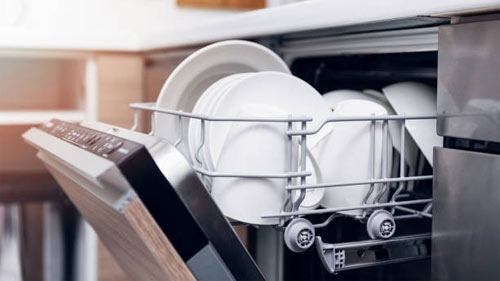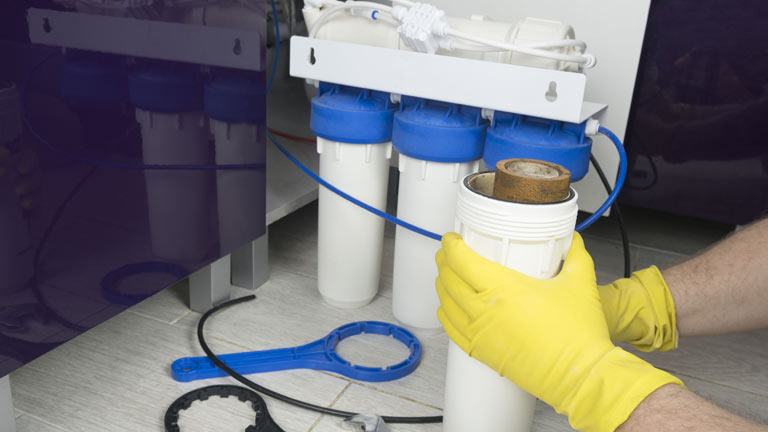
Whether you are facing a leak, cold water or even an unbearably noisy machine, there is no reason why you should have to put up with a dishwasher that doesn’t work properly.
We’ve all been there. The dishwasher stops working and day-to-day household routines are thrown into chaos and worst of all you’ll have to once more face the horror of hand washing-up.
Some tips to fix common dishwasher faults
A Leak
Of course, dishwasher leaks are rather easy to spot. However, it is important that you check the following;
- Have you added too much detergent? Overloading on detergent can cause a soapy residue in the detergent tray.
- Have you properly stacked the dishes? Overloading or improperly stacking your dishes could just be the cause of your problem.
- The door seal. Is the door seal old and worn? If so, make sure to check the owners manual for a part number and order a replacement seal.
- The pipe connectors. Ensure that the pipe connectors at the back of your machine are in good condition and correctly fastened up.
Should all of the above be okay, unfortunately your dishwasher may have corroded at the bottom. If this is the case, you may be in line for a new dishwasher.
Not Filling Properly
Have you noticed that your dishes are coming out dry and dirty? If so, then it is more than likely that your dishwasher is not filling properly.
Check under your sink and make sure that your hot water stop valve is fully open. If it is, your next step should be to check your owners manual to see whether you have access to the machine’s water inlet valve. If you do, you may find that this is clogged up and simply needs clearing out.
Not Draining Properly
If you are noticing a little water left in the tub, don’t panic, this is normal. However, should the amount of water left look like a little too much, make sure to check the following;
- Is the drain hose damaged?
- Are the drains blocked?
If neither of the above apply, then unfortunately you may be facing a new pump. Should you need more advice on this, make sure to get in contact with an expert.
Not Washing
If your plates are still dirty after a wash cycle, then it is more than likely that you should check how you load your dishes. Don’t just pile them into the machine – as plates may be in the way of others, blocking the water and detergent from reaching them.
If you have double checked your stacking, and the problem still remains, try adding more detergent.
Still not done the trick? It may be time to pick up the phone and chat to an appliance repair specialist.
Water is Cold
If you suspect that the water in your dishwasher is not heating up as it should, try:
- Holding a thermometer under the hot tap for a few minutes
- Check that the water is at least 60C
- Not hot enough? Turn up the dial on your hot water heater.
Excessive Noise
If there is one problem that is probably the biggest nuisance, it is your machine being excessively noisy. This could be down to loose or worn parts, or simply just badly stacked plates.
Between cycles, when your machine is cold, take a look inside for any hard objects such as bones, fruit stones or lost knives and forks that could be the root of the problem.
It’s also important to make sure that your unit is on a level service, yet if you are hearing a loud ‘thump’, then you may find that your water inlet valve is in need of replacement.
We hope that the above article has helped to give you some insight into what may be causing the problems you are facing with your dishwasher. Of course, should you find that your machine is doing something else or is simply just unusable it’s important that you give an appliance repair specialist a call. They will be able to give you all the advice you need and get your dishwasher back up and running as soon as possible.
Above, we have put together a guide with the help of Sale Appliance Repairs, experts in Dishwasher Repair Southend on Sea, on how to diagnose common dishwasher faults and what your next steps should be.




